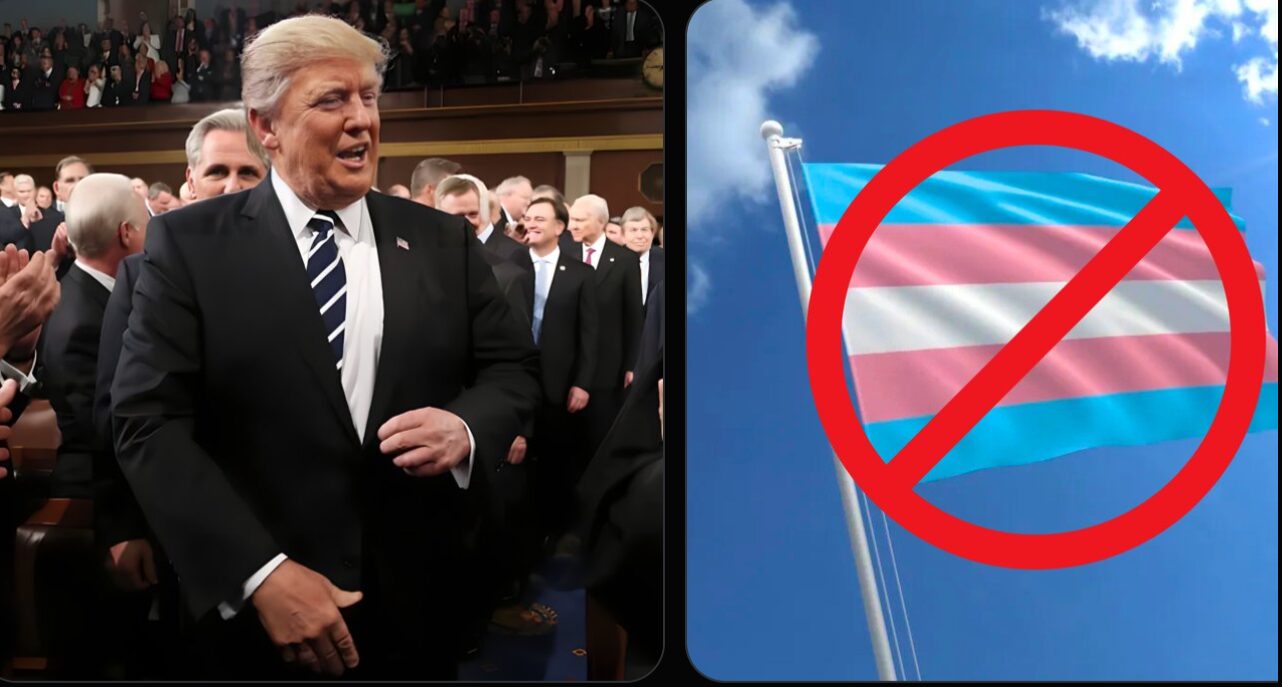US House passes a bill to BAN TRANS-WOMAN from competing in women’s school sports
In a controversial move, the U.S. House of Representatives recently passed a bill aimed at banning transgender women from participating in women’s school sports. The legislation has stirred significant debate across the country, with strong reactions from both proponents and opponents of the measure. Supporters argue that the bill is essential for protecting fairness in women’s sports, while critics view it as a discriminatory attempt to undermine the rights of transgender individuals. The passing of this bill marks another significant chapter in the ongoing national conversation about transgender rights, gender equality, and the future of sports in America.
The Contents of the Bill
The bill, which was passed by the Republican-controlled U.S. House, seeks to restrict transgender women from competing in sports designated for women in public K-12 schools, as well as college and university athletics. Under the proposed law, only athletes who were assigned female at birth would be eligible to participate in women’s sports. The bill outlines that any student-athlete seeking to compete must undergo verification of their biological sex to ensure they comply with the regulations.
This legislation is part of a broader movement in several U.S. states that have introduced similar laws, aiming to prevent transgender women from competing in women’s sports at the school level. The argument presented by the bill’s supporters is based on concerns over competitive fairness, particularly regarding the physical advantages they believe transgender women may have over cisgender women in certain athletic events.
Supporters’ Arguments for the Bill
Proponents of the bill argue that the presence of transgender women in women’s sports creates an uneven playing field. They claim that transgender women, who often retain physical advantages from male puberty, may have an inherent edge in certain sports, particularly those requiring strength and speed. Supporters of the ban assert that these advantages undermine the principle of fair competition in women’s sports and can potentially deprive cisgender women of scholarships, opportunities, and victories they would otherwise achieve.
Furthermore, some believe the bill is necessary to ensure the protection of women’s athletics, which they claim could be negatively impacted by the inclusion of transgender women in competitions. This line of reasoning centers on the concern that the inclusion of transgender athletes might diminish opportunities for women who have trained for years to compete in their respective sports.
Critics’ Response and Opposition to the Bill
On the other hand, critics of the bill argue that it is a direct attack on the rights and dignity of transgender individuals, particularly transgender women. They contend that excluding transgender women from women’s sports violates the principles of equality and inclusion, which are essential values in American society. LGBTQ+ advocates have pointed out that transgender athletes face numerous challenges already, including social stigma and discrimination, and this bill would further marginalize them.
The American Civil Liberties Union (ACLU) and other human rights organizations have spoken out against the legislation, warning that it could set a dangerous precedent for the treatment of transgender people. They argue that the bill disregards the gender identity of transgender athletes and imposes unnecessary barriers to their participation in school sports. Critics also contend that the focus on transgender women in sports is based on misconceptions about their athletic abilities and unfairly targets a vulnerable group.
Additionally, many argue that the bill does not adequately address the issue of fairness, pointing out that transgender women are subject to hormone regulations and other medical criteria in many cases, which already reduce any competitive advantages. They claim that the debate over transgender athletes in sports is often based on unfounded fears rather than evidence and that transgender women should be allowed to compete based on their gender identity.
The Broader Cultural and Political Context
The passing of this bill is part of a larger national conversation regarding transgender rights in the U.S. In recent years, a growing number of states have introduced legislation aimed at restricting transgender participation in sports, limiting access to gender-affirming healthcare, and imposing restrictions on transgender youth. The controversy surrounding these issues is not limited to sports; it reflects broader debates about the rights of transgender individuals in society.
The legislative push against transgender athletes comes amid a politically charged environment, with elections and political campaigns in various states increasingly focusing on social issues, including LGBTQ+ rights. The topic of transgender athletes in women’s sports has become a flashpoint in this ongoing culture war, with politicians on both sides of the aisle using the issue to rally their respective bases.
For opponents of the bill, the passage through the U.S. House represents a worrying trend toward legislation that seeks to limit the rights and freedoms of transgender individuals. They argue that this bill could have far-reaching consequences, not just for transgender athletes but for the broader fight for transgender equality in all aspects of life.
The Impact on Women’s Sports and Athletes
The implications of this bill are significant for the future of women’s sports. If the bill were to pass in the Senate and become law, it would drastically alter the landscape of athletics for young women in schools across the country. While supporters argue that it would restore fairness, the move would likely create confusion and uncertainty, particularly for schools and sports organizations that have already begun to implement policies that allow transgender athletes to compete.
The impact on transgender athletes is equally concerning. Many transgender women, particularly those in the process of transitioning, may face even more significant obstacles in their pursuit of sports at the school level. Some transgender women might be forced to compete in men’s sports, while others could be entirely excluded from athletic participation. This exclusion could lead to increased mental health challenges, social isolation, and a further erosion of support for transgender youth who already face a disproportionate rate of discrimination and violence.
Looking Ahead: The Senate and the Future of Transgender Athletes in Sports
As the bill now moves to the Senate, its future remains uncertain. While the bill has passed the Republican-controlled House, the Senate, which has a narrower Republican majority, may be more divided on the issue. Some moderate Republicans may oppose the bill, citing concerns about its fairness or its potential to harm transgender individuals. On the other hand, Democrats are likely to vigorously oppose the bill, framing it as an attack on civil rights and an attempt to roll back progress for transgender Americans.
Regardless of the outcome in the Senate, the ongoing debate over transgender women’s participation in sports will likely continue to be a significant issue in American politics and public discourse. The bill’s passage is a clear indicator of the growing influence of conservative groups pushing to limit the rights of transgender individuals, but it also serves as a reminder of the deep divisions in society when it comes to issues of gender identity and equality.
In Conclusion
The U.S. House’s passage of a bill to ban transgender women from competing in women’s school sports has sparked a fierce debate over fairness, inclusion, and the rights of transgender individuals. While supporters of the bill argue that it is necessary to protect women’s sports, critics view it as a discriminatory measure that undermines the rights of transgender athletes. As the bill moves to the Senate, the conversation about transgender athletes will undoubtedly continue to evolve, with potential implications for the future of gender equality in sports and beyond.

















Post Comment